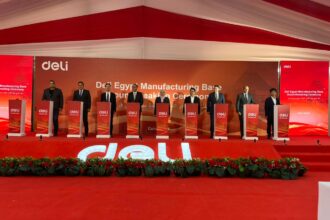Investors see that the liberalisation of the exchange rate of the Egyptian pound is too late and very necessary to improve and develop the economy and to boost new investments in the market.
They believe that the CBE’s initiative to support small and medium-sized enterprises (SMEs) with EGP 200bn is a very good step to support the economy and improve exports and provide high quality products for the local market.
“Tarek Amer is a bank fighter, and the country is in need of such bold characters who are not afraid of criticism or attacks, for the interest of the country,” said Osama El Tabaay, the head of New Damietta City Investors Association.
El Tabaay told Daily News Egypt that decisions by Tarek Amer, governor of the Central Bank of Egypt (CBE), will have positive effects on the long term, in the interest of the state. Though they have some consequences and complications in the current period, the economy is on its way to recovery.
In early January 2016, the CBE announced a plan to provide EGP 200bn to 350,000 SMEs over the next four years.
El Tabaay noted that the decision is very important and useful for the investment climate in the country and very supportive for one of the most important agencies in the economy, which are SMEs, through which the exports can be developed.
However, while the decision to increase interest rates affected investment, the 5% of the interest rate on SMEs is affordable for this kind of business.
On 6 July, the CBE’s Monetary Policy Committee (MPC) decided to raise interest rates by another 2% in its meeting, marking the third such interest rate hike since the Egyptian pound’s flotation and a 7% increase in borrowing costs since then. The overnight deposit rate was raised to 18.75% from 16.75%, while the overnight lending rate increased 19.75% from 17.75%. The CBE’s main operation rate grew to 19.25% and the discount rate was also raised to 19.75% from 17.75%, according to a statement from the CBE.
The decision to liberalise the exchange rate is too late, causing it to hurt for now, but the decision will be fruitful in the coming ten years, according to El Tabaay.
For his part, President of the Minya Investors Association Alaa Morsi also said that the CBE’s decision to liberalise the exchange rate was already late and there was no other alternative, and if the CBE took the decision a year earlier, the value of the dollar would have been less than the current value [EGP 18] and may have been only EGP 12.
Morsi expected that the decision’s positive outcomes will be tangible by the end of 2018, forecasting that the dollar value will decrease to EGP 15.
Moreover, the decision to raise the interest rate it was to address the flotation participated in price hikes of commodities, according to Morsi.
However, he criticised the decision to raise the interest rate to combat the flotation that led to successive increases in prices, and the government had to set mechanisms to control the prices and increase the supply of commodities more than the demand to avoid these hikes.
He pointed out that the increase in the interest rate to reach 22% affected investment and business badly, but the alternative was made by the CBE through launching the initiative to finance SMEs with only a 5% interest rate.
He demanded the government control the price increases.
“The decisions in general are bitter in the short term, but we hope in the long term that it has positive effects on the economy,” said Abdel Basset Al-Hakim, a member of the board of directors of the Suez Investors Association.
He added that the decision to increase the interest rate on both deposits and loans should be reconsidered.
Furthermore, he noted that the initiative to provide EGP 200bn in financing to SMEs is one of the most important achievements that happened since Tarek Amer became the governor of the CBE. However, the interest rate is high for many of the owners of these businesses, who are mostly young people.
The interest rate on SMEs ranges between 5% and 7% and he demanded the CBE reduce it to 2-3%, suggesting to apply this low interest rate in the first two years of starting a business and increasing it gradually.
“Meanwhile, the decision to liberalise the exchange rate of the pound is a step that was based on a political decision and support from the president, otherwise that step would not have worked,” Abdel Hakim said, adding, “we, as investors, are trying to address the negative effect of the liberalisation, and this had a positive effect in the depreciation of the dollar exchange to EGP 16, and this gives us a sign that the Egyptian economy will improve in the coming few years.”




